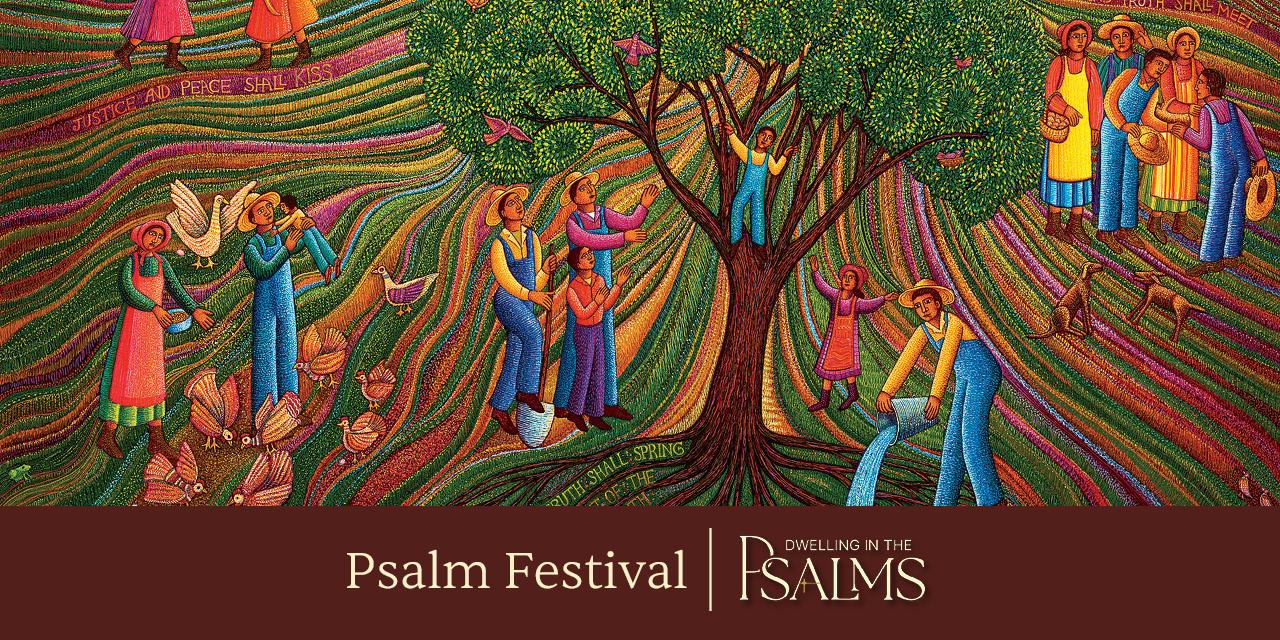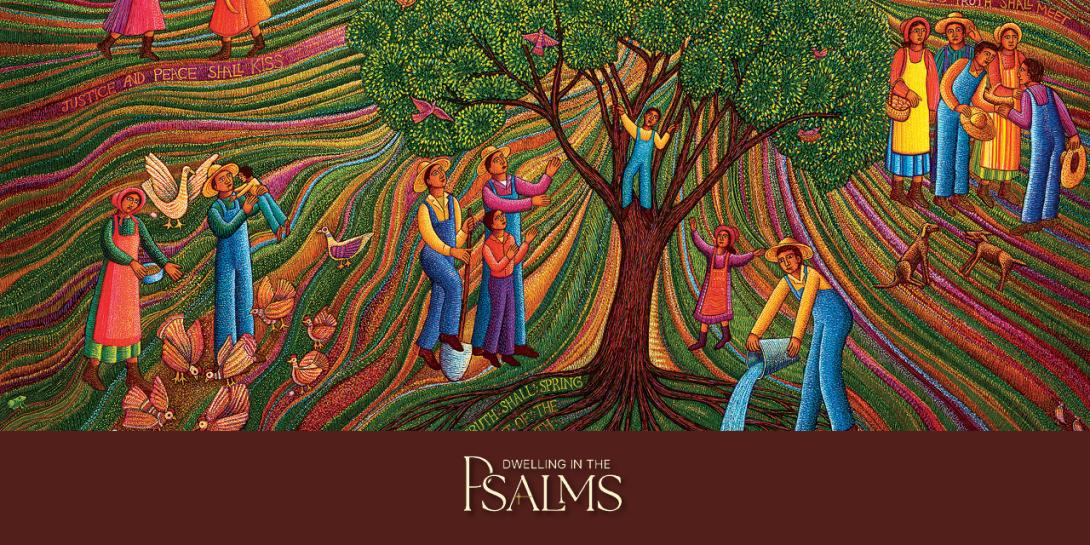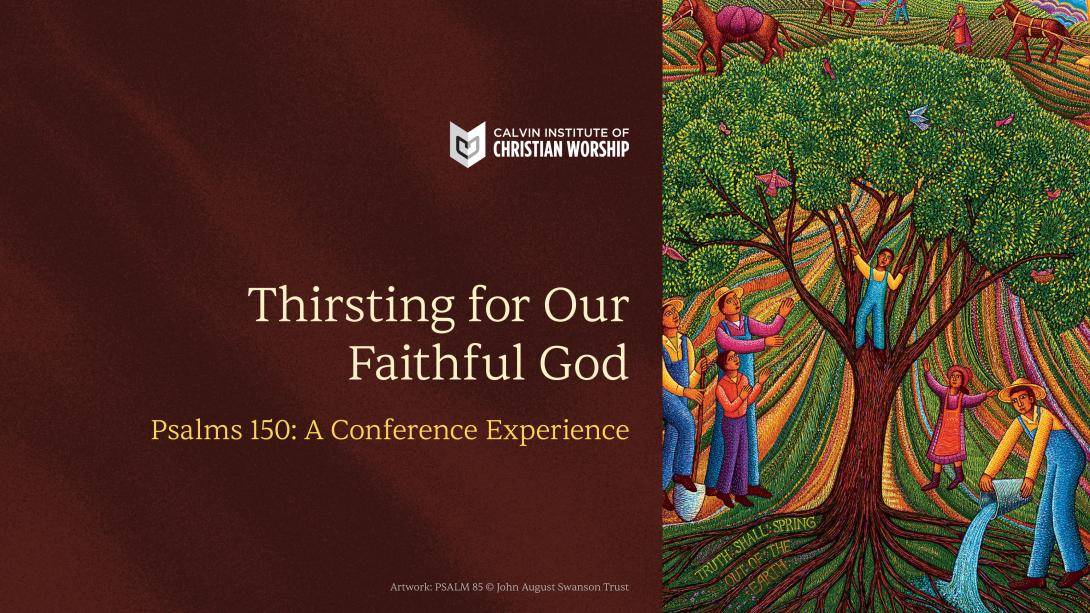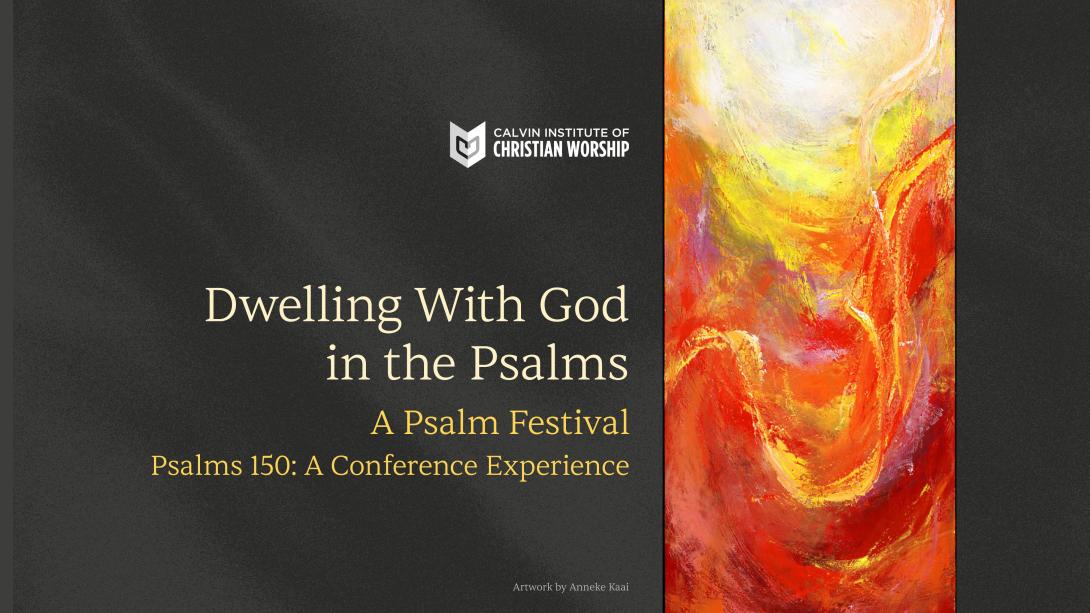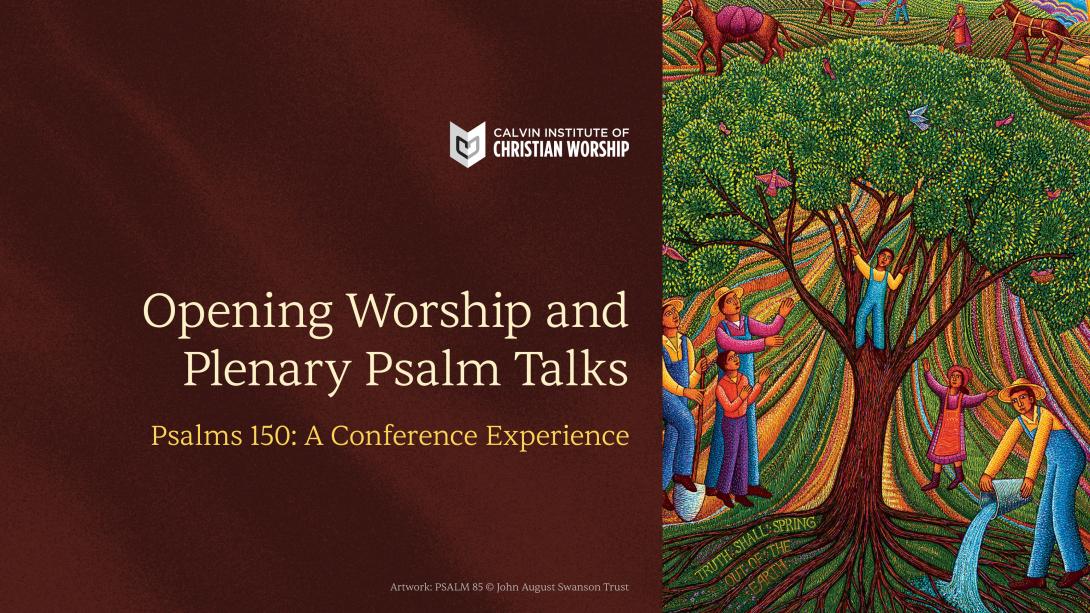Psalm 71
How does this psalm piece interpret the psalm?
Psalm 71 paints a picture of hope in the Lord that is both cause and effect of God-honoring worship. The psalmist draws our attention to this relationship through a series of petitions and affirmations—questions and answers—that resolve in the declaration of verse 14: “As for me, I will always have hope; I will praise you more and more” (NIV).
This psalm relates the rich interconnection between everlasting hope (I will ALWAYS have hope) and ongoing praise (I will praise you MORE and MORE). These are time-related qualifiers. We can know God’s hope in every time of our lives – in the good times, bad times, and for all time!
In the good times, when we can say with confidence that God is sovereign (v. 5), the praise we offer pours out of us from the hope that we experience (vs. 5, 8). In the bad times, when we struggle with fear and doubts, when we feel as if God is far away and distant (vs. 9, 12), the beautiful work of praise and worship draws us deeper into the hope to which God has called us. God’s gift of hope doesn’t change. God’s hope is for all time. But our experience of this gift is deeply connected to the God-honoring work of worship that the psalmist expands on in the later verses. Worship tells of God’s righteous and saving acts (v. 15). Worship proclaims God’s mighty and marvelous deeds (vs. 16–17). In worship, we declare the power of God to the next generation and to all who are to come (v. 18).
This psalm setting invites us to read, pray, and sing Psalm 71 through the lens of verse 14 (sung refrain), which reminds us that God’s gift of hope is an “always” hope that leads us to gratitude and praise. And the gift of faithful praise that we offer more and more leads us into a deeper experience of God’s undiminishing hope.
This psalm setting may be used within the praise section of the service or in a time of response. In either section, we pay attention to what God has done (giving us hope) and what we are called to do (praise more and more) and the rich connection therein.
Text and Music: Psalm 71; Ken Michell, © 2020 Ken Michell
Used by permission.
Contact: Ken Michell, kenmichell@gmail.com
